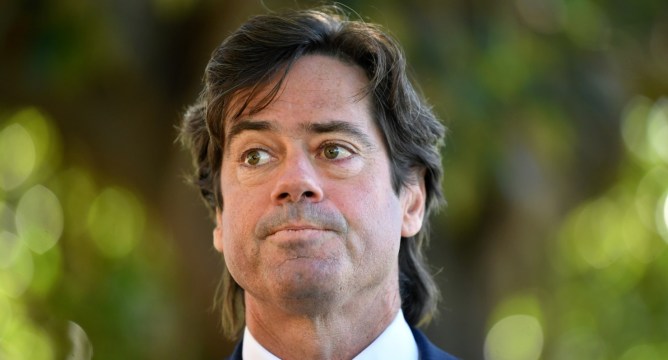This article is an instalment in a new series, Punted, on the government’s failure to reform online gambling advertising.
With polls showing around 70% of Australians want a ban on gambling advertising and more than 60% want a ban on gambling sports sponsorship, the fact that Labor has taken a year to produce a half-baked set of proposed regulations speaks volumes about who really counts in Canberra — not voters, but media companies and big sporting bodies.
Media companies and sporting bodies have succeeded in derailing the push for gambling advertising bans, sparked by the late Labor MP Peta Murphy last year and partly backed by Peter Dutton’s opposition.
In his budget reply in May 2023, Dutton first proposed a ban on gambling advertising during and for an hour either side of matches. He invited the government to work with him on that proposal, and a month later introduced a private member’s bill on the issue, just as Murphy’s inquiry was concluding. Labor could have moved fast and capitalised on the political momentum for change and delivered bipartisan reform. But the government hit the ground consulting, instead.
At the heart of those consultations is Labor’s terror of offending the big media companies that enjoy more than $100 million in gambling advertising revenue a year, despite a marked reduction this year driven by industry efforts to take the political heat out of the issue.
The reported 20% reduction in gambling revenue is one form of advertising where the decline is purely temporary: once attention fades, ads will return to the highest level allowed.
After a year of consultation, Labor has emerged with a politically risk-averse proposal that goes just a little beyond Dutton’s original recommendation: a ban on gambling ads during and an hour before and after matches, but only a cap on ads per hour until 10 pm. This is coupled with a total ban on advertising on social media — a politically friendless pantomime villain for politicians and the corporate media that no-one will defend. The third element, gambling advertising via sponsorship, jerseys and in-ground signage, would be kicked into the long grass with a review that won’t see the light of day before the next election.
You can almost see the political wheels turning on each element — using the opposition’s proposal as a launch pad for the broadcast cap, going after easily demonised social media companies, and avoiding a stoush with the big sporting codes on sponsorship.
Labor is counting on the reality that even if 70% of voters want a gambling advertising ban, only a tiny fraction are going to change their vote because of it come the next election. A ban that results in animosity from the big media companies, which still dictate the media agenda and determine what images even disengaged voters see during election campaigns, simply isn’t worth it politically.
But the risk is that such a cynical cut-and-paste job alienates everyone — and confirms the impression that the Albanese government is too weak to make hard decisions and doesn’t stand for anything. It also confirms the toxic grip media companies have on public policy in Australia, one that has long harmed consumers and ensured Australia has a second-rate, oligopolistic media industry that invests more in ensuring it has a steady flow of regulatory wins from politicians than in quality journalism.
According to some corporate media outlets, this grip is weakening. That idea is based on the failure of the government to extend the anti-siphoning scheme, which transfers wealth from sporting rights holders to the television networks, even further to encompass streaming services, including hard-to-regulate foreign services, and the fact that Meta is refusing to be shaken down by the corporate media. In both cases, what’s happening is that outrageous extensions of Australia’s anti-competitive regulatory framework to new, usually foreign industries, as demanded by the corporate media, have failed to work.
The corporate media is now demanding another transfer of wealth: this time from taxpayers in the form of yet further fee reductions for the publicly owned spectrum they use. That’s to make up for the expected loss in gambling ad revenue they expect to incur. In effect, the networks are demanding they be compensated by taxpayers for reducing the massive harm their gambling advertising does to the community.
In other words, it’s yet another shakedown.
Should gambling advertising be banned? Let us know your thoughts by writing to [email protected]. Please include your full name to be considered for publication. We reserve the right to edit for length and clarity.
